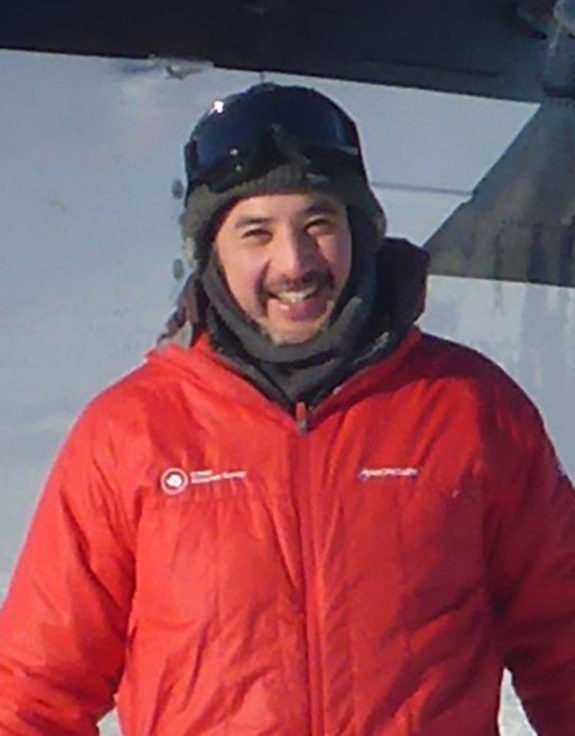BAS staff awarded the Polar Medal
Congratulations to BAS staff who have been awarded a Polar Medal in the 2023 New Year’s Honours List for their scientific work or their technical support for science, in order to improve our understanding of Antarctica and enduring Antarctic conditions.
The Polar Medal is a medal awarded by the Sovereign of the United Kingdom to individuals who have outstanding achievements in the field of polar research, and particularly for those who have worked over extended periods in harsh climates. It was instituted in 1857 as the Arctic Medal, and renamed the Polar Medal in 1904. Until 1968, the Polar Medal was presented to anyone who participated in a polar expedition endorsed by the governments of any Commonwealth realms.
Since 1968 the rules governing its presentation have been revised with greater emphasis placed on personal achievement. Since 1998, the criteria for being awarded a Polar Medal are:
- the period of service living and working in the arduous conditions of a Polar environment required to be considered for this Medal shall normally be not less than twelve months, shorter periods of service may be aggregated to meet this criterion.
- service in the support of the acquisition of knowledge of Polar regions shall normally be at least ten years’ such service in order to be considered for the Medal, although, in exceptional cases, a shorter period of outstanding service may be considered.
David Barnes is a benthic ecologist that has been working in polar science since double-wintering at Signy Station from 1990-1993. He has completed 15 trips south and six north, and led scientific cruises from the Arctic Barents Sea to the Western Antarctic Peninsula fjords but also to the UK Overseas Territories of Ascension and Tristan da Cunha. Most of his work focusses on the status and change of seabed blue carbon and interactions with climate, sea ice and icebergs. Recently David has been working with the Alfred Wegener Institute in the Weddell Sea onboard PolarStern, and is currently using SCUBA to look at long-term biodiversity dynamics in the shallows around Rothera Research Station. He will soon join RRS Sir David Attenborough for the polar water trials around the Scotia Sea area.
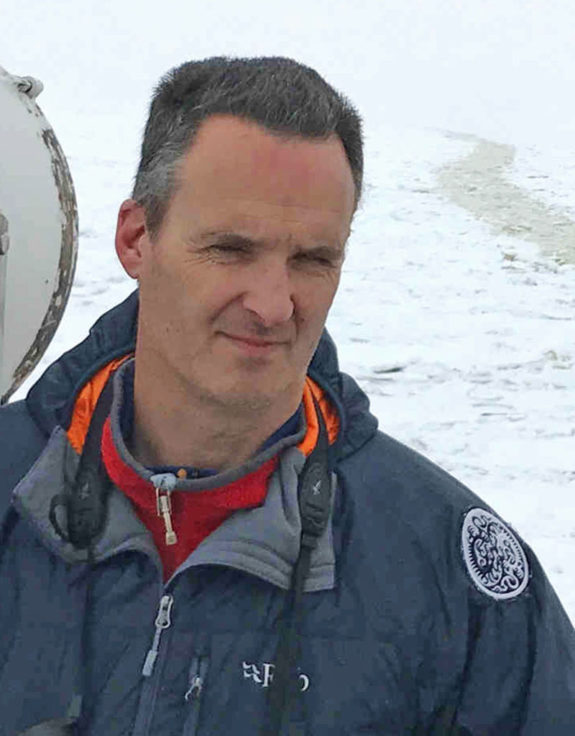
Joanne Johnson has worked for BAS as a geologist and geochemist for 20 years and has spent seven seasons in Antarctica. She specialises in using geochemical techniques to reconstruct the past thickness and extent of the Antarctic ice sheet. Understanding how the size and shape of the ice sheet has changed through time is critical for ground-truthing models that will help to predict how fast the Antarctic ice sheet will contribute to sea-level rise in future centuries. Joanne is most familiar with the Amundsen Sea sector of the West Antarctic Ice Sheet, having undertaken multiple field campaigns there since 2006. She currently leads the Geological History Constraints project of the International Thwaites Glacier Collaboration and actively shares her work on Twitter.
Joanne balances her passion for Antarctic research with looking after her two school-age children. She has worked part-time for the past 13 years, and hopes that through receiving this award, she will be an inspiration to others contemplating both parenthood and a career in research.
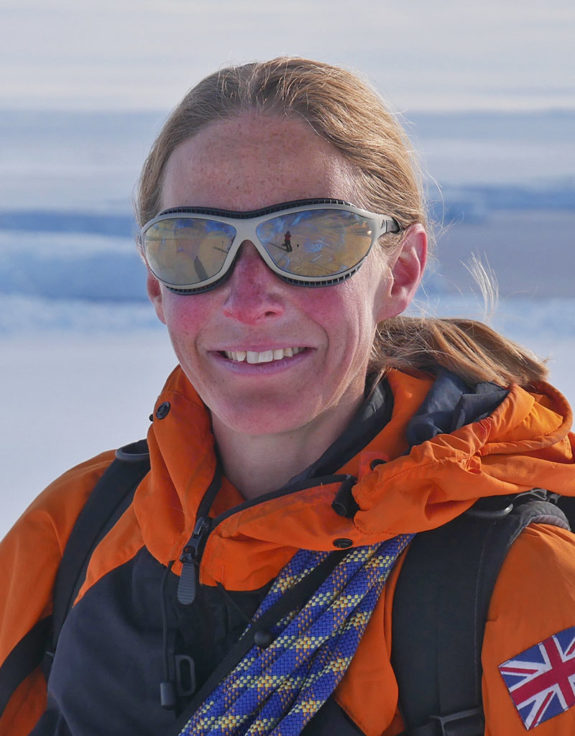
Tom Jordan is an aero-geophysicist who has worked for BAS for 17 years. Tom’s work, including seven seasons south, has focussed on airborne surveys over Antarctica’s vast ice sheet that covers more than 99% of the continent. The only way to understand the continent’s geology below and its impact on the ice sheet is to make remote measurements from aircraft. Mapping gravity and magnetic fields, together with radar imaging of the ice sheet, has allowed Tom to explore this unknown, fascinating and important frontier.
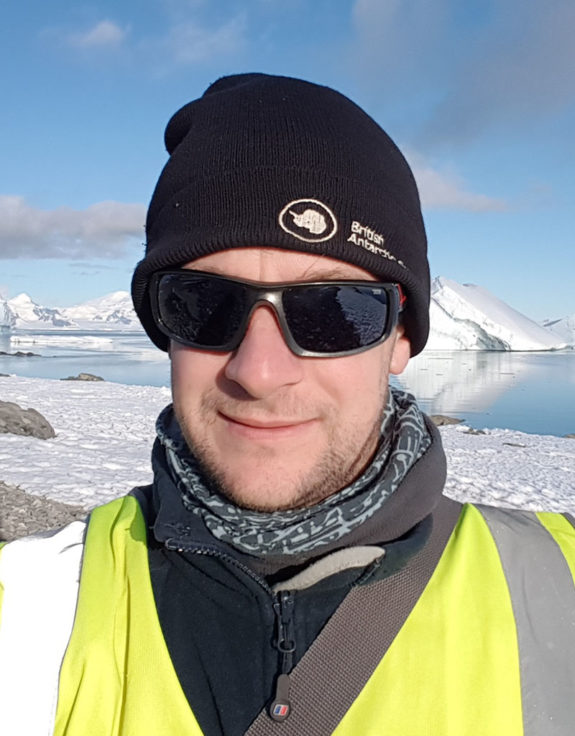
Richard Phillips has been at BAS for 22 years and is Head of the Predators Group, and deputy science leader of the Ecosystems Programme. He has made 12 fieldwork trips to the Antarctic and South Georgia. Richard’s research interests are in the ecology and conservation of seabirds, particularly albatrosses and petrels. He is involved with the Agreement on the Conservation of Albatrosses and Petrels (ACAP), the SCAR Expert Group on Birds and Marine Mammals and the CCAMLR working group on Incidental Mortality Associated with Fisheries. These international agreements develop strategies to promote research on seabirds and other marine taxa, particularly where this is of relevance to understanding and managing marine and terrestrial threats.
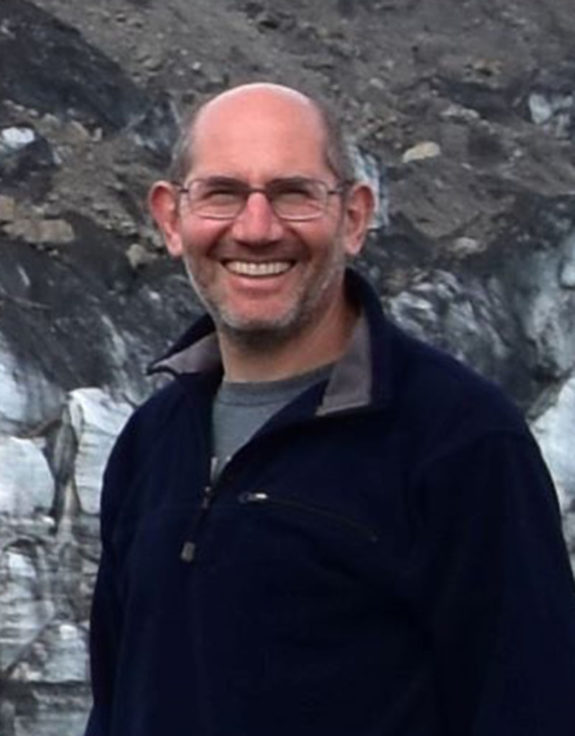
Julius Rix is Head of Engineering and Technology at BAS and has worked for the survey for 14 years. He has spent two winters and eight summers in Antarctica and twice worked on the Greenland ice cap. After wintering as the Advanced Ionospheric Sounder Engineer at Halley, Julius returned as the BAS ice-core driller, drilling cores in the Antarctic and Arctic, and developing the BAS Rapid Access Isotope Drill. Julius was made Head of Engineering and Technology in 2022.
